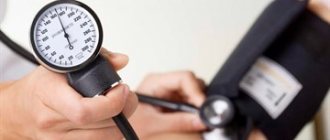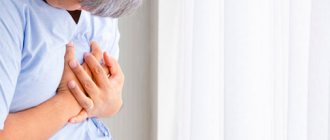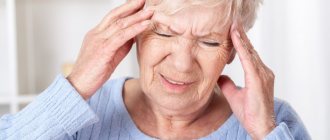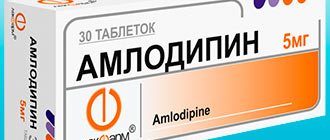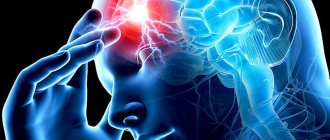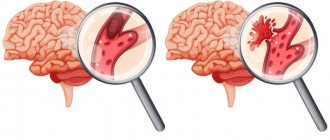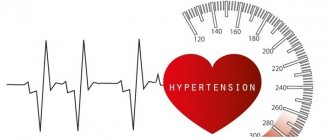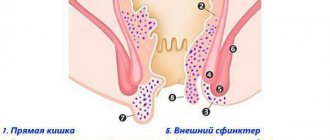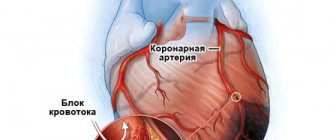The norm is considered to be a general body temperature of +36 to +37°C. A periodic decrease to +35.5°C is possible with hypotension, hypothermia and some infections. Usually this condition normalizes on its own over time. But there are situations where hypothermia is very dangerous.
Nervous and physical exhaustion
High physical activity, prolonged stress, lack of sleep, poor diet and strict diets often lead to a deficiency of the body’s energy resources. As a result: metabolism slows down, blood circulation slows down and the temperature drops below normal by 1-2 degrees. The pathological condition is accompanied by significant weight loss, apathy, weakness, fatigue, depressed mood or increased nervous excitability. There may be frequent headaches and decreased mental abilities. The person becomes distracted and inhibited. There is a weakened immune system and hypovitaminosis.
With physical and nervous exhaustion, body temperature steadily decreases to +35–35.5°C. The condition is accompanied by chills even in warm weather. This pathology is usually not life-threatening, but it is an alarming sign that requires urgent lifestyle changes.
Post-viral syndrome
In this case, the body temperature usually stays around +35.5°C or +35°C for several days. In the fight against infections, the body spends a lot of internal resources, suffers from the consequences of intoxication and microbial aggression, which is why many functions, including thermoregulation, are disrupted. The early period of recovery is often accompanied by a decrease in temperature. The condition is accompanied by other symptoms: physical weakness, bad mood, drowsiness, decreased concentration. Shortness of breath may occur, worsening with exertion and stress. Children, adolescents, and people with chronic vascular and central nervous system diseases are susceptible to pathology.
Low blood glucose
Hypoglycemia due to prolonged hunger and excess insulin provokes energy starvation of the brain, slows blood circulation and metabolism. As a result of glucose deficiency, physical weakness develops, dizziness, and attacks of hunger. With a prolonged lack of sugar in the blood, coordination of movements is impaired, asthenia sets in, the body breaks out in cold sweat, and body temperature drops to +35°C. In the absence of outside help to the body, fainting and hypoglycemic coma are possible. People of any age are susceptible to pathology; insulin-dependent patients suffer more often than others.
How weather affects a person's blood pressure
Weather changes are perceived by most people as a natural phenomenon. Yes, your mood may spoil on a cloudy day, nothing more. But there is a category of people who, when the atmospheric pressure changes, feel a significant deterioration in their overall health: headaches, dizziness, loss of strength, aching joints. These and other symptoms significantly complicate the life of a person suffering from weather dependence. But knowing how atmospheric pressure affects the pressure in the blood vessels, you can understand what measures to take to prevent health problems. Polina Zhelezova , chief physician of the OGBUZ Center for Public Health and Medical Prevention, chief freelance specialist in medical prevention of the Department of Health of the Kostroma Region, talks about this
.
Atmospheric pressure and blood pressure, that is, the pressure in the vessels of our body, are closely related. Arteries and veins quickly respond to changes in the atmosphere, expanding or narrowing. Thus, a healthy person does not feel discomfort. If a person has a history of problems with the cardiovascular, endocrine, nervous system, or the body is simply weakened due to vitamin deficiency, excessive physical or emotional stress, then his blood vessels simply cannot keep up with changes in nature and attacks of hypertension or hypotension occur.
High atmospheric pressure
Changes in atmospheric pressure are directly affected by air temperature, humidity parameters, wind speed and even seasons. So, when we observe a frosty, clear day, without precipitation, this indicates high atmospheric pressure, that is, an anticyclone. What happens in the human body, namely with its blood pressure? It, following the established connection, also increases. At the same time, the condition of hypertensive patients especially worsens; “due to the weather,” their blood pressure rises even higher. The most common unpleasant symptom of this condition is headache of varying intensity and character. But other signs may also occur: tinnitus, hearing impairment, darkening of the eyes, dry mucous membranes, strong heartbeat, rhythm disturbances, pain in the heart area, increased breathing, shortness of breath. If the pressure jump was sharp, then in the absence of proper help, an acute attack of hypertension, known as a hypertensive crisis, is possible. And this is the first step to strokes and heart attacks.
Low atmospheric pressure
With high air humidity, cloudiness, high temperature and low atmospheric pressure, a cyclone appears. Most often this happens in autumn and spring. At this time, hypotension suffers the most - people whose blood pressure may not reach 100/60 mmHg. Art. At the same time, due to the dilation of blood vessels, blood circulates more slowly throughout the body. This leads to oxygen starvation of tissues and organs. During a cyclone, the pressure drops even lower, which causes the following symptoms: dizziness, apathy, decreased performance, severe headaches, weak pulse, possible digestive system disorders, difficulty breathing. What happens to the blood pressure of hypertensive patients during a cyclone? They also suffer from sudden weather changes. Most people with hypertension take medications to control their symptoms. First of all, medications to lower blood pressure. During a cyclone, its indicators drop even lower, which worsens a person’s general well-being. He feels a loss of strength, decreased attention, pressing pain in the head and blurred vision.
Recommendations for hypotensive and hypertensive patients
Depending on what condition you are suffering from, hypotension or hypertension, the list of doctor's recommendations is very different. If the patient complains of symptoms characteristic of low blood pressure
, then when the weather changes, you need to spend more time in the fresh air, engage in active sports (jogging, cycling, swimming), drink plenty of fluids, drink caffeinated drinks (strong tea, coffee), for an emergency increase in blood pressure, take tinctures of lemongrass, ginseng, and eleutherococcus .
For people prone to hypertension, doctors strongly recommend
adhere to the following rules: avoid physical and emotional fatigue, avoid walking in the sun, constantly ventilate the room, adhere to proper nutrition, excluding salty, spicy, spicy and fatty foods, do not drink coffee and other drinks containing caffeine, take medications prescribed by your doctor on time .
In any case, you should establish a daily routine, get more rest, avoid stress and eat right. And in order to help your body in a timely manner, it is important to control your blood pressure using devices.
Monitor the temperature and humidity
In addition to atmospheric pressure, other weather parameters also affect the body, namely air temperature and humidity.
If, at high atmospheric pressure, there is a sharp and significant decrease in temperature and an increase in air humidity, a state of hypothermia may develop, in other words, hypothermia. In this case, vasospasm occurs, which provokes a decrease in heat transfer. With persistent spasm, pressure increases significantly, this can lead to a hypertensive crisis.
As humidity increases, the amount of oxygen in the air decreases. The body reacts painfully to oxygen starvation, dizziness, weakness, numbness of the limbs occur, and panic attacks are possible. If the pressure on the weather fluctuates, you feel unwell, emotional and physical disorders, this condition is called meteopathy. Various factors influence susceptibility to this condition: genetic predisposition, age, personality traits, and the presence of chronic health problems. Manifestations of this syndrome can knock a person out of the usual rhythm of life for several days. At the same time, in addition to physical ailments (dizziness, changes in blood pressure, changes in body temperature, weakness, numbness of the limbs, allergy attacks, etc.), a whole range of psychological reactions is observed: apathy, depression, tearfulness, irritability, increased anxiety, panic attacks.
If you are prone to this condition, you need to adhere to a healthy lifestyle, reduce emotional and physical stress, and monitor weather forecasts in order to be prepared for weather changes.
Help with hypothermia
Immediate measures: exposure to heat, elimination of hunger, neutralization of toxins. A person with hypothermia is advised to drink hot tea, take a bath, and wrap himself in a thick blanket. In critical conditions, hospitalization is required.
The exact causes of the pathological symptom are determined by the therapist or doctors of other profiles. Diagnostics includes biochemical and hormonal blood tests, ECG, ultrasound of internal organs, computed tomography or MRI of the spine and brain. A complete medical examination helps to identify the most unexpected causes of low temperature.
Drug therapy depends on the established diagnosis. These can be antibiotics, immunomodulators, antidepressants, nootropics. To consolidate the results of treatment, the doctor usually recommends purchasing vitamin and mineral complexes.
Treatment
Help before diagnosis
If the body temperature is more than 32°, you can get by with passive warming. The person is wrapped in heated blankets or placed in a bath with warm water and given hot tea. With prolonged hypothermia and satisfactory condition during the convalescence period, specific treatment is not required - sleep 8-10 hours a day, increased calorie intake, and adequate rest are recommended. If the reasons for the detected low temperature are unclear, consult a doctor.
First aid for hypothermia
Conservative therapy
At critically low temperatures, active warming is effective: heat fans and heating pads, inhalation of warm humidified oxygen and intravenous infusion of heated solutions. In emergency situations, warm lavage and extracorporeal blood purification methods are used. For etiotropic and pathogenetic treatment of diseases accompanied by a drop in human body temperature below 36 degrees, the following are prescribed:
- Vitamins
. With general exhaustion of the body, B vitamins are indicated, which enhance neuromuscular transmission and improve the trophism of nervous tissue. Alpha tocopherol is used as a powerful antioxidant. For severe weakness, glucose solutions with vitamin C are administered. - Hormones
. Replacement therapy with levothyroxine allows you to accelerate the processes of metabolism and thermogenesis, and restore normal body temperature. In case of Addison's disease, cortisol preparations are necessary; in case of a lack of mineralocorticoids, aldosterone is additionally administered. - Cardiotropic drugs
. Medicines stimulate cardiac activity in shock and other critical conditions, normalize cardiac output and increase blood pressure. The drugs of choice for emergency care are solutions of adrenaline or dobutamine; in hospital therapy is supplemented with glycosides. - Antidepressants
. The medications are serotonin receptor agonists and improve neural connections between different parts of the brain. Temperature normalization occurs due to stimulation of the hypothalamic center and increased contractile thermogenesis. - Antibiotics
. Hypothermia often masks the manifestations of a severe bacterial infection, so broad-spectrum antibiotics are indicated for very low body temperatures. Medicines are administered intravenously until temperature values normalize and general condition improves. - Antidotes
. For acute signs of intoxication, universal drugs are used that bind or destroy various toxic substances. In cases of heavy metal poisoning and drug overdose, unithiol is effective.
